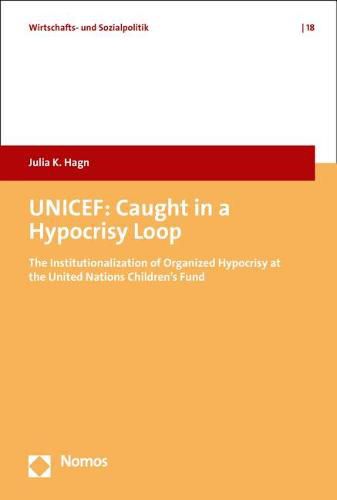Readings Newsletter
Become a Readings Member to make your shopping experience even easier.
Sign in or sign up for free!
You’re not far away from qualifying for FREE standard shipping within Australia
You’ve qualified for FREE standard shipping within Australia
The cart is loading…






On the basis of an in-depth study of the United Nations Children’s Fund (UNICEF), this book sheds light on the phenomenon of unintended yet undesirable institutionalisation processes in organisations. The separation of rhetoric and action, known as organised hypocrisy, is both a valuable and dangerous tool for organisations. While it serves to ensure organisational survival, it also causes fragmentation, ultimately leading to a hypocrisy loop that an organisation cannot escape. The consequences are highly detrimental to its internal workings and its external performance. Thus, the study disproves the assumption that organised hypocrisy is per se functional to an organisation. By revealing the dynamics that occur if rhetoric and action are separated for many years, the model the book develops also bridges a gap in the literature on sociological institutionalism, which lacks a plausible theory on institutionalisation processes in organisations. Moreover, the book also provides unique insights into the work UNICEF does.
$9.00 standard shipping within Australia
FREE standard shipping within Australia for orders over $100.00
Express & International shipping calculated at checkout
On the basis of an in-depth study of the United Nations Children’s Fund (UNICEF), this book sheds light on the phenomenon of unintended yet undesirable institutionalisation processes in organisations. The separation of rhetoric and action, known as organised hypocrisy, is both a valuable and dangerous tool for organisations. While it serves to ensure organisational survival, it also causes fragmentation, ultimately leading to a hypocrisy loop that an organisation cannot escape. The consequences are highly detrimental to its internal workings and its external performance. Thus, the study disproves the assumption that organised hypocrisy is per se functional to an organisation. By revealing the dynamics that occur if rhetoric and action are separated for many years, the model the book develops also bridges a gap in the literature on sociological institutionalism, which lacks a plausible theory on institutionalisation processes in organisations. Moreover, the book also provides unique insights into the work UNICEF does.